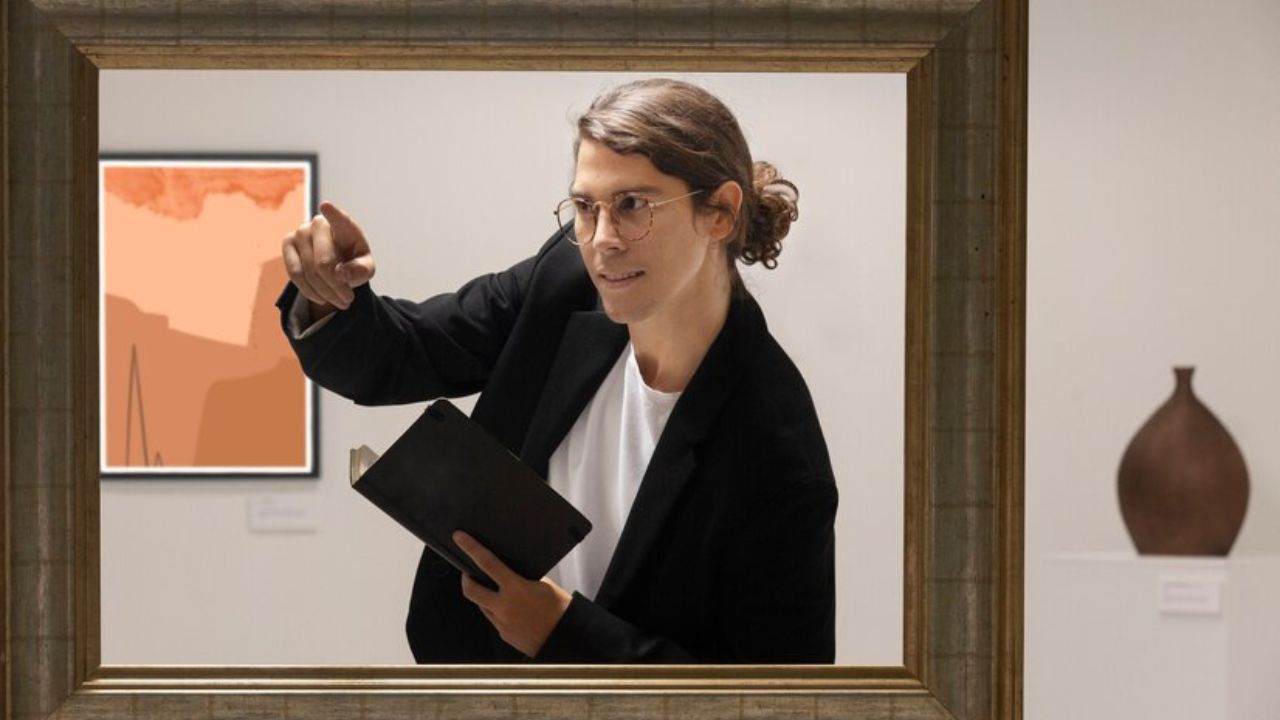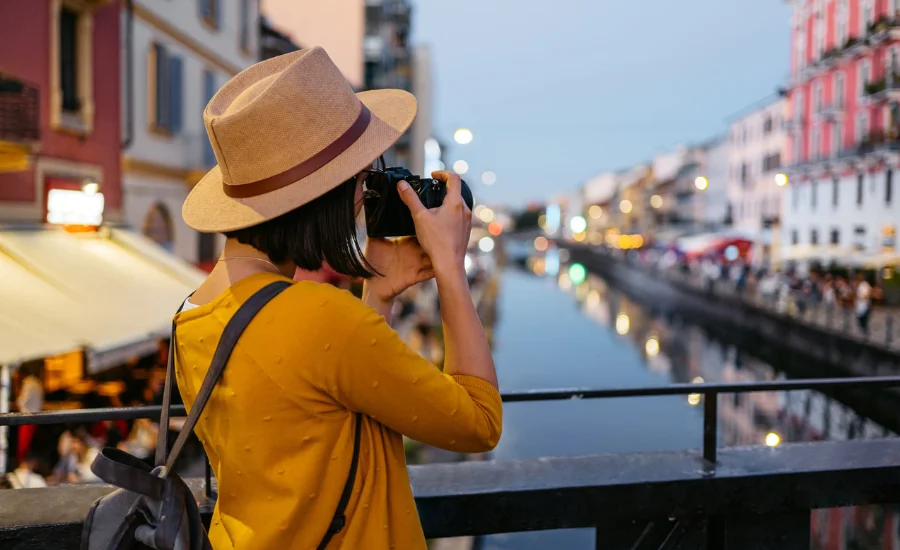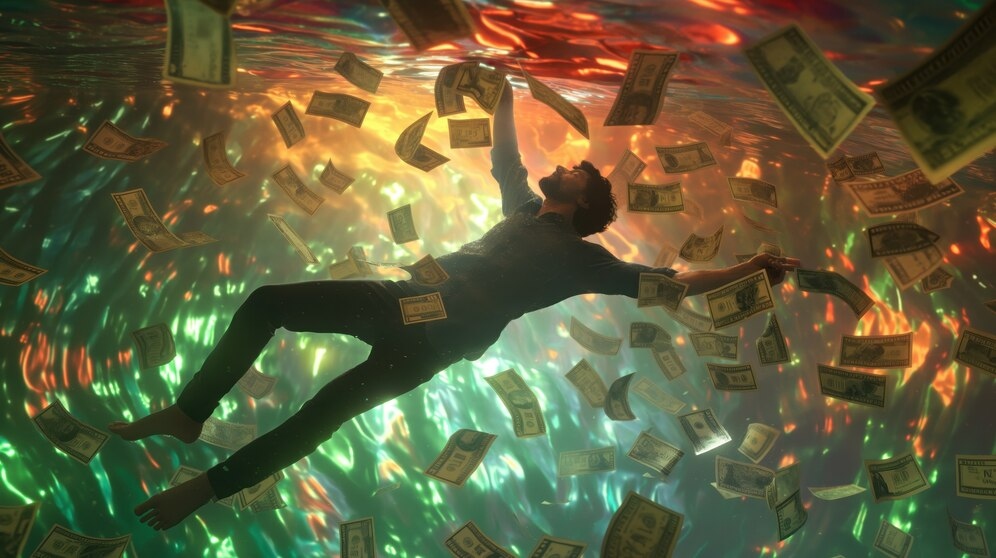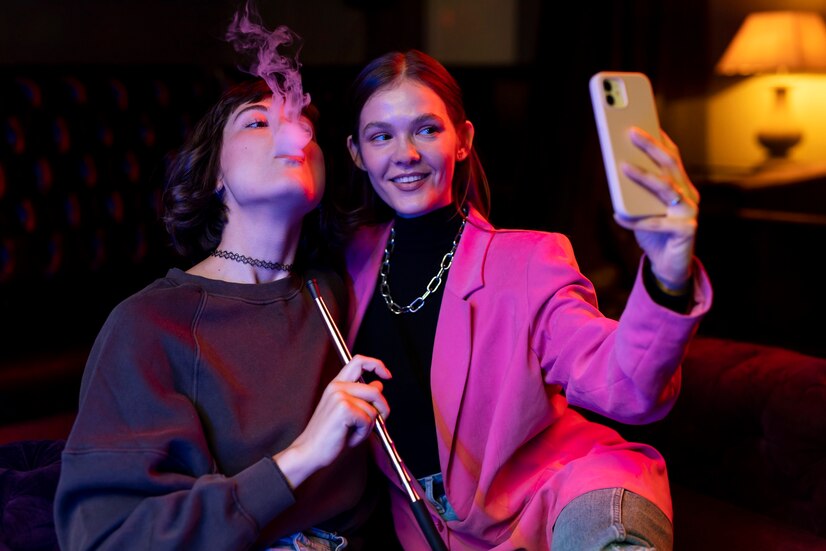BLOG
Modernized mona lisa: The Ultimate Guide

The Modernized mona lisa has captivated audiences for over 500 years with her enigmatic smile and mysterious allure. Yet as we move further into the digital age, this Renaissance masterpiece is taking on new life in innovative ways. This blog post will explore how the Mona Lisa has been reimagined, transformed, and modernized for today’s art enthusiasts. From digital recreations to street art interpretations, we’ll uncover how this iconic portrait continues to inspire and evolve. Whether you’re an art historian, a digital artist, or just a curious reader, you’ll discover new dimensions of this timeless artwork.
The Timeless Appeal of the Mona Lisa
Why the Mona Lisa Endures
The Modernized mona lisa, painted by Leonardo da Vinci in the early 16th century, remains one of the most famous and analyzed paintings in the world. Its enduring appeal is partly due to its subject’s mysterious expression and the innovative techniques Leonardo employed. The painting’s sfumato technique, where colors and lines blend seamlessly, creates an almost lifelike quality.
Cultural Impact Over Centuries
Over the years, the Modernized mona lisa has become more than just a painting; it has turned into a cultural icon. It has been referenced in films, literature, and even music, making it a staple in popular culture. Its theft in 1911 and eventual recovery only added to its legendary status, sparking worldwide interest and admiration.
Modern-Day Fascination
Even today, the Modernized mona lisa attracts millions of visitors to the Louvre Museum annually. This fascination isn’t limited to traditional art lovers; the painting has found a new audience among digital artists and tech-savvy individuals, proving its universal appeal.
Digital Reinterpretations
The Rise of Digital Art
With the advent of digital technology, artists now have tools that allow for innovative reinterpretations of classic works like the Mona Lisa. Software like Adobe Photoshop and Illustrator, along with digital tablets, have made it easier than ever to experiment with colors, textures, and styles.
Famous Digital Versions
There are numerous digital versions of the Mona Lisa that have gained popularity online. Some artists have transformed her into a modern woman, complete with contemporary fashion and settings. Others have used abstract techniques to deconstruct and reassemble the image, creating entirely new works of art.
How Digital Art Keeps the Mona Lisa Relevant
Digital reinterpretations help keep the Mona Lisa relevant in today’s fast-paced world. They offer fresh perspectives and invite audiences to engage with the artwork in new ways. These modern takes can be shared instantly across social media platforms, reaching a broader audience than traditional art forms.
Street Art Transformations
Mona Lisa in Urban Settings
Street artists have also taken inspiration from the Mona Lisa, incorporating her image into their urban canvases. From graffiti walls to murals, her face can be found in cities around the world. These public displays bring art to people who might not visit museums, democratizing access to this iconic image.
Famous Street Artists Inspired by the Mona Lisa
Artists like Banksy and Shepard Fairey have created works featuring the Mona Lisa, often adding social or political commentary. These pieces challenge viewers to think about the painting in the context of contemporary issues, adding layers of meaning to the original artwork.
The Message Behind the Art
Street art transformations of the Mona Lisa often carry messages about beauty, identity, and society. By placing her in unexpected contexts, artists provoke thought and discussion, ensuring the painting remains relevant and thought-provoking.
The Mona Lisa in Pop Culture
Movie and TV References
The Mona Lisa has made numerous appearances in films and television shows, often symbolizing mystery or beauty. Movies like “The Da Vinci Code” have built entire plots around the painting, while TV shows use her image to add a touch of sophistication or intrigue.
Music and the Mona Lisa
The painting has also inspired musicians, from classical composers to modern pop stars. Songs referencing the Mona Lisa often explore themes of beauty, mystery, and allure, much like the painting itself.
Fashion and Merchandise
The Mona Lisa’s image has been used in various fashion items and merchandise, from T-shirts to phone cases. These products allow fans to carry a piece of this iconic artwork with them, blending high art with everyday life.
The Role of Social Media
Sharing and Discovering Art Online
Social media platforms like Instagram and Pinterest have become essential for sharing and discovering art. Artists and art lovers alike use these platforms to showcase their Mona Lisa-inspired works, reaching global audiences instantly.
Hashtags and Trends
Hashtags like #MonaLisa and #ArtReimagined help users find and share reinterpretations of the painting. These trends keep the Mona Lisa in the public eye, ensuring she remains a topic of conversation.
Influencers and the Mona Lisa
Influencers in the art and fashion worlds often feature the Mona Lisa in their content, adding their own unique twists. Their posts can spark trends and inspire others to create their own versions of the painting.
Educational Applications
Teaching Art History
Educators use the Mona Lisa to teach students about art history, techniques, and cultural impact. Digital tools and interactive platforms make it easier to bring the painting to life in the classroom.
Interactive Learning
Apps and websites offer interactive experiences where users can explore the Mona Lisa in detail, learning about its history and significance. These tools make art education more engaging and accessible.
Museums and Virtual Tours
Many museums offer virtual tours that include the Mona Lisa, allowing people from around the world to experience the painting without leaving their homes. These tours often include expert commentary, adding depth to the viewing experience.
The Mona Lisa and AI
AI-Generated Art
Artificial Intelligence (AI) has entered the art world, creating new versions of the Mona Lisa and other masterpieces. AI algorithms analyze the original painting and produce unique variations, pushing the boundaries of creativity.
Deepfakes and Ethics
While AI offers exciting possibilities, it also raises ethical questions. Deepfake technology can create realistic but fake images and videos, leading to concerns about authenticity and the potential for misuse.
The Future of AI in Art
AI’s role in art is still evolving, but its potential to transform how we create and interact with art is immense. The Mona Lisa, as a subject, will likely continue to inspire AI-generated works, keeping her at the forefront of technological advancements.
Collecting Modern Mona Lisa Art
Buying Digital Art
For those interested in collecting modern interpretations of the Mona Lisa, digital art offers a convenient and versatile option. Platforms like Etsy and DeviantArt feature works from artists worldwide, making it easy to find unique pieces.
Limited Editions and Prints
Many digital and street artists offer limited edition prints of their Mona Lisa-inspired works. These prints can be a more affordable way to own a piece of modern art while supporting artists.
NFTs and Digital Ownership
Non-Fungible Tokens (NFTs) have revolutionized digital art ownership. Collectors can purchase NFTs of Mona Lisa reinterpretations, securing a digital certificate of ownership that adds value and exclusivity.
The Impact on Traditional Art Markets
Bridging the Gap
Modern interpretations of the Mona Lisa help bridge the gap between traditional and contemporary art. They attract new audiences to classic works while encouraging appreciation for innovative approaches.
Influencing Art Sales
The popularity of modern Mona Lisa art can influence sales in traditional art markets. Galleries and auction houses may see increased interest in works that reference or reinterpret classic masterpieces.
Fostering Creativity
By reimagining the Mona Lisa, artists contribute to a culture of creativity and innovation. Their works inspire others to think outside the box and explore new artistic possibilities.
Personalizing the Mona Lisa
Custom Art Commissions
Some artists offer custom commissions, allowing clients to personalize the Mona Lisa. Whether it’s adding personal elements or incorporating unique styles, these custom pieces make the artwork even more special.
DIY Art Projects
For the creatively inclined, DIY projects offer a hands-on way to engage with the Mona Lisa. From painting to digital editing, there are endless ways to put a personal spin on this iconic image.
Sharing Your Art
Platforms like Instagram and Pinterest make it easy to share your Mona Lisa-inspired creations. Engaging with a community of like-minded individuals can provide inspiration and feedback, enhancing your artistic journey.
The Mona Lisa’s Global Influence
Cultural Adaptations
The Modernized mona lisa has been adapted to fit various cultural contexts, reflecting the diversity of global art. These adaptations highlight the universal appeal of the painting while showcasing different artistic traditions.
International Exhibitions
The painting has been featured in exhibitions around the world, drawing large crowds and generating interest in art and history. These exhibitions often include modern reinterpretations, bridging the gap between past and present.
Celebrating Diversity
Modernized mona lisa art celebrates diversity by incorporating elements from different cultures and perspectives. This inclusive approach ensures that the painting remains relevant and meaningful to people from all walks of life.
Conclusion
Modernized mona lisa transformation in the modern world is nothing short of remarkable. From digital art to street murals, this timeless masterpiece continues to inspire and evolve. For art enthusiasts and curious minds alike, exploring these modern interpretations offers a fresh perspective on a classic work. Whether you’re admiring a digital recreation or a street art version, the Mona Lisa’s enigmatic smile continues to captivate and inspire.
BLOG
When Is the Best Time for Pool Deck Resurfacing in Tampa?

Maintaining a beautiful and functional pool area is a top priority for many Florida homeowners, especially in cities like Tampa, where the sun shines almost year-round. Suppose your pool deck is cracked, stained, or outdated. In that case, resurfacing is one of the most effective ways to breathe new life into your outdoor space; however, timing matters, particularly regarding Tampa’s unique climate.
When is the best time for pool deck resurfacing in Tampa? Let’s explore the factors influencing this decision, from weather conditions and humidity levels to seasonal demand and contractor availability.
Why Resurfacing Your Pool Deck Matters
Over time, exposure to sun, rain, chlorine, and foot traffic can cause pool decks to wear down. Cracks, fading, peeling, or rough surfaces not only affect the aesthetics of your pool area but can also become safety hazards. Resurfacing improves:
- Appearance and curb appeal
- Slip resistance
- Surface durability
- Property value
With the right resurfacing materials, such as stamped concrete overlays, spray texture coatings, or pavers, you can give your deck a completely fresh look without the cost of total replacement.
Tampa’s Climate: A Key Factor in Resurfacing Timing
Tampa has a humid subtropical climate characterized by long, hot summers and mild winters. This climate plays a major role in when it’s most effective to resurface a pool deck.
Average Tampa Climate Overview:
- Summer (June–September): Hot, humid, with frequent rain. Temperatures range from 75°F to 92°F.
- Winter (December–February): Mild and dry. Temperatures range from 52°F to 73°F.
- Rainiest months: June through September see the most rainfall, with July averaging 7–8 inches of rain.
Because resurfacing materials require dry, stable conditions to cure properly, rain and humidity can delay the process or negatively affect the final finish.
Best Time of Year for Pool Deck Resurfacing in Tampa
Late Fall to Early Spring (November–April): Ideal
This is generally the best window for pool deck resurfacing in Tampa. Why?
- Lower humidity improves curing conditions.
- Less rainfall reduces the risk of work delays.
- Comfortable temperatures make installation easier and more predictable.
- The off-peak season for pool use means fewer disruptions to your leisure time.
Choosing to resurface between November and April helps ensure optimal results and a smoother experience overall. You’ll also likely have your pool area ready before the heavy-use summer months arrive.
Summer Months (June–September): Riskier but Possible
While it’s not impossible to resurface in the summer, it comes with some challenges:
- Daily rain showers may delay the project or impact drying times.
- High humidity can lead to poor bonding or bubbling if materials aren’t managed carefully.
- Higher demand for contractors during summer may affect scheduling and pricing.
Some contractors are well-equipped to handle summer resurfacing using quick-curing products and protective coverings. If summer is your only window, just be sure to work with experienced professionals.
Late Spring (May) and Early Fall (October): Transitional Months
These months offer a balance of decent weather and contractor availability. With moderate temperatures and declining rainfall, late spring and early fall can be suitable for resurfacing, especially if you plan well.
Contractor Availability and Seasonal Pricing
Another consideration when timing your pool deck resurfacing in Tampa is contractor availability. Spring and summer tend to be peak remodeling seasons, which means:
- Higher demand and pricing
- Longer lead times for scheduling
- Limited promotions or discounts
On the other hand, booking your project in the off-season (winter months) often comes with perks like:
- More flexible scheduling
- Seasonal discounts or incentives
- Quicker project turnaround
A 2023 survey of Florida homeowners showed that projects scheduled between December and February averaged 10–15% lower costs than those booked in June or July.
Material Considerations by Season
Different resurfacing materials behave differently depending on temperature and humidity. Here’s what to keep in mind:
- Spray knockdown texture: Best applied in dry, mild weather; ideal in fall and winter.
- Stamped concrete overlays: Require stable curing temperatures; avoid during peak heat or rain.
- Epoxy coatings: Sensitive to humidity; perform best in cooler months.
- Pavers or tile: More forgiving but still benefit from dry conditions.
Consult your contractor about the best materials for your timeline and local weather patterns.
Tips for Planning Your Pool Deck Resurfacing in Tampa
- Book Early – Schedule your project 1–2 months ahead, especially during spring or summer.
- Monitor Weather Forecasts – Allow some flexibility in case of unexpected rain.
- Ask About Quick-Dry Solutions – Some modern products allow faster installation and curing.
- Check Warranty Terms – Ensure your contractor backs their work regardless of the season.
- Communicate Your Timeline—To avoid scheduling conflicts, Let the contractor know if you’re hosting events or planning travel.
Final Thoughts
Choosing the right time for pool deck resurfacing in Tampa can mean the difference between a smooth, long-lasting upgrade and a stressful, delayed project. For most homeowners, the dry, cooler months between November and April offer the ideal conditions for resurfacing. However, you can achieve excellent results year-round with the right materials and a skilled contractor.
By planning, staying weather-aware, and partnering with experienced professionals, you’ll be ready for a refreshed, safe, and stunning pool deck prepared to shine in the Florida sun.
BLOG
Discover Wellness with Ann Bullock at ://vital-mag.net

In today’s fast-paced world, finding time for wellness can be challenging. But what if taking care of your health could be as joyful as it is beneficial? Enter Ann Bullock’s blog at ://vital-mag.net, where fitness meets fun, and wellness is a holistic experience. This blog post will introduce you to the vibrant world of Ann Bullock, offering insights into her unique approach to health and wellness. Join us as we explore the core themes of her blog, including weight loss, strength training, sleep therapy, nutrition courses, and meditation.
Meet Your Guide to Wellness
Ann Bullock is not your ordinary fitness guru. Her blog at ://vital-mag.net stands out by emphasizing joy and laughter in wellness pursuits. Ann’s philosophy is simple yet profound—fitness should be fun and fulfilling. By integrating laughter into workouts and promoting a balanced lifestyle, she offers a refreshing perspective on health.
Ann’s approach encourages readers to find joy in every step of their wellness journey. Whether you’re counting reps or indulging in a moment of meditation, her guidance ensures you do it with a smile. Her blog serves as a gentle reminder that fitness is not just about reaching goals but also enjoying the process.
By sharing her personal experiences and insights, Ann creates a relatable space for readers to explore their own path to wellness. Her stories inspire readers to approach fitness with a playful attitude, making her blog an inviting place for anyone looking to enhance their health.
The Art of Weight Loss
Weight loss is often seen as a daunting task, but Ann Bullock redefines it as an enjoyable challenge. Her blog offers practical tips and strategies to shed pounds while maintaining a positive outlook. From setting achievable goals to celebrating small victories, Ann makes weight loss an engaging experience.
Ann emphasizes the importance of listening to your body and taking a mindful approach to eating. Her blog provides readers with tools to develop a healthy relationship with food, focusing on nourishment rather than restriction. With Ann’s guidance, weight loss becomes a sustainable and empowering journey.
By sharing success stories and offering personalized advice, Ann builds a supportive community for those pursuing weight loss. Her blog encourages readers to celebrate every step forward, fostering a sense of accomplishment and motivation.
Building Strength with Joy
Strength training is another pillar of Ann’s blog, where she combines exercises with elements of fun. Her unique routines incorporate laughter and creativity, making workouts something to look forward to. Ann’s approach helps readers build strength while enjoying the process.
Her blog offers detailed guidance on developing a strength training routine that fits individual needs and preferences. From beginner tips to advanced techniques, Ann covers all aspects of strength building. She encourages readers to experiment and find what works best for them.
Ann’s focus on joy and fulfillment in strength training sets her blog apart. By turning workouts into playful challenges, she motivates readers to push their limits and achieve their fitness goals with enthusiasm.
Sleep Therapy for Restful Nights
Quality sleep is essential for overall well-being, and Ann Bullock’s blog highlights its importance. Her sleep therapy tips help readers create a restful environment, ensuring they wake up refreshed and ready to tackle the day.
Ann’s blog offers practical advice on establishing a bedtime routine, optimizing sleep environments, and managing stress for better rest. Her holistic approach to sleep therapy addresses both physical and mental aspects, promoting a balanced lifestyle.
By prioritizing sleep, Ann empowers readers to improve their quality of life. Her blog serves as a valuable resource for those seeking to enhance their sleep habits and reap the benefits of restorative rest.
Nutrition Courses to Nourish the Soul
Nutrition is a fundamental aspect of Ann’s wellness philosophy. Her blog features comprehensive nutrition courses that guide readers toward healthier eating habits. Ann’s approach focuses on nourishment, balancing indulgence with mindful choices.
Her blog covers various topics, from understanding nutrition labels to meal planning and cooking at home. Ann provides readers with the knowledge needed to make informed decisions about their diets, promoting a holistic approach to nutrition.
Ann’s courses offer practical tips and strategies for incorporating nutritious foods into daily life. By making nutrition accessible and enjoyable, her blog becomes a go-to resource for anyone looking to improve their diet and overall health.
Meditation for Mindful Living
Meditation is a powerful tool for achieving mental clarity and emotional balance. Ann Bullock’s blog introduces readers to the art of meditation, offering guidance on how to incorporate it into daily routines.
Her blog provides step-by-step instructions for beginners, as well as tips for enhancing meditation practices. Ann emphasizes the importance of mindfulness, helping readers cultivate a sense of presence and peace.
By integrating meditation into her wellness philosophy, Ann offers a comprehensive approach to well-being. Her blog inspires readers to explore the benefits of mindfulness and discover the tranquility that meditation brings.
Community Connection
Connecting with like-minded individuals is a key to sustained wellness, and Ann’s blog fosters a strong sense of community. Readers are encouraged to share their experiences, tips, and challenges, creating a supportive network.
Ann’s blog features interactive elements like forums and comment sections, where readers can engage in meaningful conversations. By building a community around wellness, Ann provides a space for readers to learn, grow, and inspire each other.
The sense of belonging and shared purpose enhances the overall wellness experience. Ann’s blog is more than just a collection of articles; it’s a community of individuals committed to improving their health and well-being together.
Exclusive Insights and Resources
In addition to her blog posts, Ann offers exclusive resources for subscribers. Her newsletter keeps readers updated on the latest wellness trends, providing valuable insights and tips directly to their inbox.
Subscribers gain access to curated content, including workout plans, nutrition guides, and meditation playlists. Ann’s dedication to providing high-quality resources ensures that readers receive the support they need to thrive.
By subscribing, readers become part of Ann’s wellness community, gaining access to personalized advice and exclusive offers. Her blog offers a wealth of information that empowers readers to take control of their health and well-being.
Inspiring Success Stories
Ann Bullock’s blog is rich with inspiring success stories from readers who have transformed their lives through her guidance. These stories serve as powerful reminders of the impact that wellness can have on our lives.
Each success story offers valuable insights and lessons, motivating readers to pursue their own wellness goals. Ann celebrates the achievements of her community, highlighting the diverse paths to health and happiness.
These stories create a sense of camaraderie and inspiration, encouraging readers to persevere in their wellness journeys. Ann’s blog becomes a beacon of hope and possibility, empowering individuals to achieve their fullest potential.
Expert Advice and Collaboration
Ann collaborates with a team of wellness experts to bring readers the most accurate and up-to-date information. Her blog features guest posts and interviews with nutritionists, fitness trainers, and mental health professionals.
These collaborations provide readers with diverse perspectives and insights, enriching their wellness knowledge. Ann’s commitment to accuracy and expertise ensures that her blog remains a trusted source of information.
By partnering with experts, Ann enhances the credibility and reliability of her blog. Readers can trust that the advice and guidance they receive are grounded in research and experience.
A Journey Toward Holistic Health
Ann Bullock’s blog encapsulates the essence of holistic health, emphasizing the interconnectedness of physical, mental, and emotional well-being. Her approach encourages readers to explore all aspects of wellness, from fitness to mindfulness.
By taking a comprehensive approach, Ann provides readers with a roadmap to achieving balance and harmony in their lives. Her blog inspires individuals to prioritize their health, creating a ripple effect of positive change.
With her guidance, readers embark on a transformative wellness journey, discovering the joy and fulfillment that come from nurturing every aspect of their being.
Conclusion
In a world where wellness can often feel overwhelming, Ann Bullock offers a refreshing perspective. Her blog at ://vital-mag.net invites readers to find joy in their wellness journeys, encouraging them to laugh, explore, and grow. Whether you’re looking to lose weight, build strength, improve sleep, nourish your body, or practice mindfulness, Ann’s blog provides the tools and inspiration needed to succeed.
By joining her community, readers gain access to a wealth of resources, expert advice, and a supportive network of like-minded individuals. Ann’s holistic approach to wellness empowers individuals to take charge of their health, creating a life filled with joy, vitality, and balance.
Explore Ann Bullock’s blog today and discover the power of wellness done right. Whether you’re a seasoned fitness enthusiast or just starting your wellness journey, there’s something for everyone at ://vital-mag.net. Join the community and take the first step toward a healthier, happier you.
BLOG
Goodmooddotcom.com Travel Archives: Journey Through Time and Discover the Stories of the World

Travel offers a window into the past in addition to a change of environment. Every location is full with intriguing tales that beg to be discovered and provide a window into the spirit of bygone eras.
Experiencing old cities and historical ruins gives one a real link to the past. It seems as though you can practically hear the footsteps of people who have gone before you as you stroll down cobblestone streets.
Our understanding of other civilizations is enhanced by the secrets and stories that each monument and historic site has to offer. We experience the heritage of previous civilizations personally by fully immersing ourselves in these locations and becoming a part of their continuing tale.
Museums, brimming with artifacts, bring history to life beyond what textbooks can offer. Each artifact stands as a testament to human creativity and endurance, offering a silent yet profound connection to our shared past.
Through Goodmooddotcom.com Travel Archives, we not only explore where we’ve been but also gain a deeper understanding of our own identities. This journey bridges the gap between past and present, revealing the enduring connections that shape who we are today.
Uncover the Stories Behind Iconic Historical Landmarks

Like live storytellers, historical places and landmarks share the rich tapestry of our past with us. Each brick and stone bears evidence to the centuries it has seen.
Consider the historic remnants of Machu Picchu. This Incan castle, perched high in the Andes, provides breathtaking views along with a strong historical tie. Strolling on its terraces is like Goodmooddotcom.com Travel Archivesback in time and seeing the Inca world of old.
Similarly, the Colosseum in Rome stands as a monumental relic of gladiatorial combat. This iconic amphitheater, once the stage for life-or-death contests, continues to fascinate millions annually, drawing visitors into the dramatic spectacles of ancient entertainment.
The Great Wall of China, stretching across rugged terrains, is a remarkable feat of human engineering. Trekking its length provides a unique opportunity to marvel at both the natural landscape and the monumental effort that went into its construction.
Each of these landmarks invites us to explore and reflect, reminding us that travel is not just about reaching a destination. It’s an opportunity to connect with history on a personal level, enriching our understanding of the past while deepening our appreciation of the present.
Immerse Yourself in the Richness of Global Cultures Through Goodmooddotcom.com Travel Archives
A rare opportunity to interact extensively with a range of cultures and customs is presented by travel. Every place reveals itself like a vibrant tapestry, full with unique local flavors, customs, and tales that give it its own identity.
Interacting with locals offers a rewarding experience, enriching your journey. Sharing meals or joining in local festivals brings authenticity to your visit, allowing you to savor genuine cuisine and learn traditional dances directly from those who live and celebrate these customs daily.
Artisan markets serve as vibrant showcases of cultural heritage. Handmade crafts reveal stories and skills passed down through generations, offering a meaningful way to support local artists and preserve their traditions.
Every culture has its own rhythm, expressed through music, dance, and art that resonate deeply. By immersing yourself in these cultural experiences, you forge connections that extend beyond geographical and temporal boundaries. This immersion transforms your travels into a richer, more meaningful experience, far beyond merely visiting historical sites.
The Evolution of Goodmooddotcom.com Travel Archives
Over time, there have been significant changes to travel and tourism. Every period has had a distinct influence on how we traverse the world, from the early days of caravans crossing deserts to the present day of fast jet travel.
Trade and conquest were the main drivers of Goodmooddotcom.com Travel Archivesin the past. To find resources or to build empires, explorers traveled into undiscovered territory. Another important factor was the quest for knowledge, with academics traveling to promote intellectual progress and share views.
With the introduction of railroads and steamships, the Industrial Revolution heralded a revolutionary era in which remote locations became more attainable. Once a luxury only available to the wealthy, travel has become a common experience for everyone.
In the contemporary era, technology has revolutionized Goodmooddotcom.com Travel Archives. Online booking platforms and social media offer unparalleled convenience and inspiration, simplifying trip planning. Virtual reality now provides immersive previews of distant locations, enhancing the travel experience before setting foot there.
This evolution not only highlights advancements in transportation but also reflects a shift in cultural values towards greater exploration and connectivity.
Discovering Hidden Gems: Essential Tips for Authentic Exploration

Exploring hidden gems requires a blend of flexibility, cultural sensitivity, and responsible Goodmooddotcom.com Travel Archives practices. To fully appreciate these off-the-beaten-path destinations, keep these key principles in mind.
Embrace flexibility as you journey through lesser-known spots. Unexpected changes or detours often lead to the most memorable experiences. Approach each day with an open mind, ready to adapt to local conditions and seize spontaneous opportunities.
Respecting local cultures is crucial when visiting remote or traditional communities. Adhering to local customs, dress codes, and cultural practices ensures a respectful and genuine interaction with the places you explore.
Talking to informed locals or tour guides can improve your experience. These knowledgeable locals provide exclusive perspectives and access to hidden gems that could otherwise go unnoticed. Their viewpoints might enhance your comprehension and admiration of the location.
How Technology Has Transformed Modern Goodmooddotcom.com Travel Archives
Technology has had a significant impact on the travel industry recently. Maps and guidebooks on paper were formerly necessary, but today it’s all digital and seamless. Smartphones are now a need for each modern Goodmooddotcom.com Travel Archives.
Travelers may get the most recent information on flights, hotel reservations, and nearby attractions with just a few clicks. GPS technology makes it easy to navigate through unknown areas and find your way.
Social networking sites have completely changed how we communicate about our vacation adventures. Magnificent pictures of meals or landscapes might encourage people to visit the same places, resulting in a worldwide interchange of Goodmooddotcom.com Travel Archives inspiration.
Online booking systems have made trip planning more efficient than ever. Travelers can quickly compare prices, read reviews, and make informed decisions about their accommodations and activities.
Mobile apps now act as personalized travel guides, offering tailored recommendations that enhance the exploration experience. These tools help travelers discover hidden gems and make the most of their journeys.
As technology continues to advance, it further enriches the Goodmooddotcom.com Travel Archives experience, transforming our adventures into uniquely personalized and exciting explorations.
The Lasting Impact of Goodmooddotcom.com Travel Archives
Traveling weaves a rich tapestry of memories that transcends time. Each journey captures unique experiences, emotions, and stories, becoming cherished treasures for future generations to discover.
Imagine your grandchildren looking through old photographs of you in front of the Eiffel Tower or hiking in the Andes. These images will connect them to your adventures, making them feel a part of your travels.
Sharing stories from your journeys can spark a sense of wonder about far-off places and diverse cultures. Personal tales breathe life into history, motivating younger generations to dream and embark on their own explorations.
Preserving these travel memories is crucial. Consider keeping a Goodmooddotcom.com Travel Archives journal or creating a scrapbook with mementos such as ticket stubs and postcards. These tangible keepsakes provide a source of inspiration and connection for those who follow.
Every journey you take today plants the seeds for future explorers. As we forge new paths, remember that our travels are not just personal experiences but shared legacies waiting to inspire and connect with others.
Final Words
Traveling is a fascinating journey through time and culture that transforms our lives and leaves a lasting impact. It is much more than just going from one location to another. Every place we Goodmooddotcom.com Travel Archives to, be it a bustling market, a historic landmark, or a little town, adds a unique narrative to our own experiences. Through photos, notebooks, and conversations, these tales and memories are preserved and become priceless assets for us and future generations.
In addition to gaining a broader understanding of the globe, discovering hidden treasures and appreciating local cultures also helps to promote more responsible and courteous Goodmooddotcom.com Travel Archives. Travel has evolved to become more individualized and accessible due to changes in cultural values and technology breakthroughs.
-

 TECHNOLOGY7 months ago
TECHNOLOGY7 months agoNavigate Mojini V3 Login Like a Pro
-

 TOPIC8 months ago
TOPIC8 months agoDiscovering Joe’s Carts: A Adventure on Wheels
-

 BLOG8 months ago
BLOG8 months agoSteve Cartisano Net Worth: A 2024 Deep Dive into His Wealth and Success
-

 BLOG9 months ago
BLOG9 months agoMyWape: A Deep Dive into the Emerging Video-Sharing Platform
-

 BLOG10 months ago
BLOG10 months agollm 申請 statement of purpose
-

 BLOG9 months ago
BLOG9 months agoWhy Aoleonuithietke.com Is the Go-To Resource for Creative Inspiration
-

 TECHNOLOGY7 months ago
TECHNOLOGY7 months agoHow to Review and Analyze Security Camera Footage
-

 HEALTH7 months ago
HEALTH7 months agoCeylan Eye Cream Reviews: The Ultimate Guide to Bright Eyes
